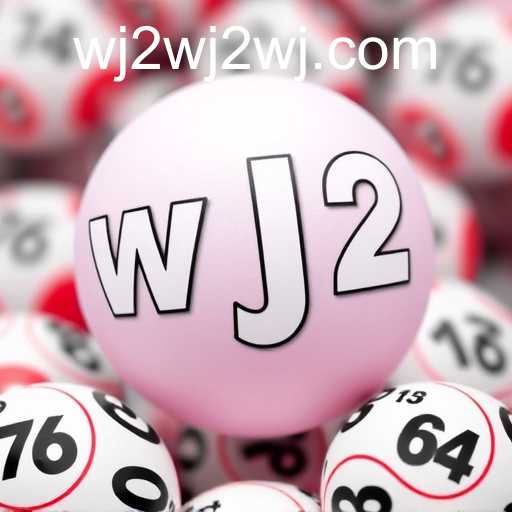The Fascination with Lottery Games: A Journey into the World of Chance
The Origin and Evolution of Lottery Games
Lottery games have a rich history that spans centuries and crosses continents. Originally conceived as a method to raise funds for public projects, lotteries gained credibility and acclaim across various cultures. Their journey began in ancient China, where keno slips were used as a form of a lottery to finance major government works such as the Great Wall of China. Similarly, in ancient Rome, lotteries were conducted during lavish feasts, offering items of varying value as prizes, a spectacle of wealth and generosity.
The word "lottery" comes from the Dutch "lot" meaning "fate" or "destiny," and the concept has evolved with time. Initially a tool for civic improvement and state projects, lotteries gradually integrated into the fabric of society as a popular pastime. The colonial era in America, for instance, saw lotteries aiding in the establishment of institutions like Harvard and Yale, illustrating their critical role in societal development.
Understanding the Mechanics of Modern Lottery Games
Today’s lottery games are designed with much more complexity and intrigue. They exist in various formats and styles, including multi-state lotteries, scratch-offs, and online digital versions that offer players multiple ways to engage with the games. The enthralling simplicity yet calculated design make lotteries appeal to a broad audience.
The basic premise remains the same: players purchase tickets with their selected numbers, and a random draw determines the winning combination. The allure of beating the odds and the dream of instant wealth continues to fuel the widespread participation in lottery games today. "wj2" emerges as a prominent keyword, symbolizing a captivating code that may lead to untold fortunes for the lucky few.
The Psychology Behind Lottery Games
What makes lottery games so captivating? Psychological theories suggest that the human attraction to gambling, and lottery games specifically, hinges on a combination of hope, thrill, and the underlying social phenomenon of comparison.
The chance of winning, no matter how slim, ignites a spark of hope. This hope is coupled with the thrill of anticipation, an emotional rollercoaster powered by uncertainty. As participants compare stories of fortunes won and losses endured, the societal impact further deepens engagement with lottery games. The element of "wj2" could represent hidden opportunities, acting as a psychological anchor for those wishing to tap into the mysticism of these games.
Lottery Games as a Cultural Phenomenon
Lottery games transcend mere numbers and draws; they have become embedded in cultural traditions across the globe. Many national lotteries, for example, become national events, with drawings eagerly anticipated and discussed incessantly. These events not only promise financial windfalls but also bring communities together in a collective social experience.
From the Powerball and Mega Millions draws in the United States to the EuroMillions in Europe, these lotteries have gained iconic status. They morph into cultural phenomena that challenge perception of fortune and fate, with participants constantly looking for that winning combination of their own "wj2," which could turn fantasies into reality.
The Economic Impact of Lottery Games
Lotteries generate billions in revenue annually, affecting economies worldwide. The money collected from ticket sales often goes back into public works, education, and community projects, creating a cycle of reinvestment and growth. However, despite the positive economic contributions, there are concerns. Critics argue that lotteries are a "hidden tax," one that disproportionately affects lower-income individuals who spend a larger percentage of their earnings on tickets.
Balancing these concerns with the benefits is complex. Yet, the potential represented by the keyword "wj2"—a cryptic nod to the prospective spoils of the game—continues to attract eager players, ever hopeful for a life-changing win. Thus, the economic implications of lottery games are as nuanced and varied as the people who participate in them.
Lottery Games and Technology
The digital age has revolutionized lottery games, enhancing accessibility and increasing participation. Online platforms enable players to engage with lotteries globally, breaking the barriers of geography. This transition has not only made participation more convenient but has also introduced new forms of games and virtual tickets.
Mobile applications with features such as random number generators have brought new dimensions to traditional lottery games. Keyword searches like "wj2" on these platforms might lead to surprisingly innovative features or opportunities. The current interplay between technology and lotteries demonstrates how the old and new can coexist, expanding horizons for both operators and players.
The Ethical Considerations in Lottery Gaming
The ethical dimensions of lottery play continue to stir debate. Issues of gambling addiction and fairness are prevalent, prompting calls for stronger regulations and support systems. It becomes crucial for operators to ensure transparency in their processes, providing clear instructions and honest marketing to protect vulnerable individuals.
Furthermore, the profits generated by the lotteries should be used responsibly to benefit society at large, ensuring that the promises made at the inception of each game are honored. The role of ethics becomes even more pertinent when considering the potential implications of "wj2," representing a significant win or opportunity without deception.
Wrapping Up the World of Lottery Games
Lottery games inhabit a unique space in the landscape of entertainment, economy, and culture. While offering the tantalizing lure of financial freedom, they continue to be a subject of analysis and discussion across various domains. The path from ancient gamification techniques to modern-day lottery affairs underscores humanity's enduring fascination with chance and fortune. As players continue to search for their winning "wj2," the story of lottery games remains a captivating chapter in the wider narrative of social and economic evolution.








